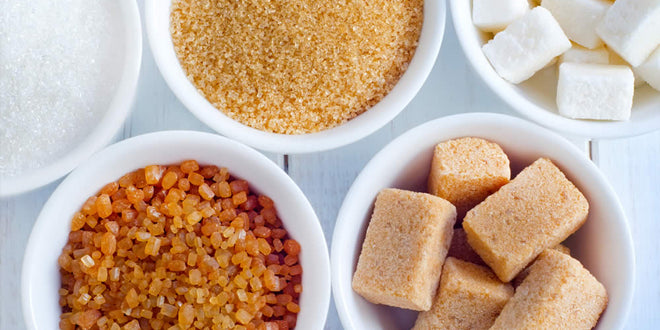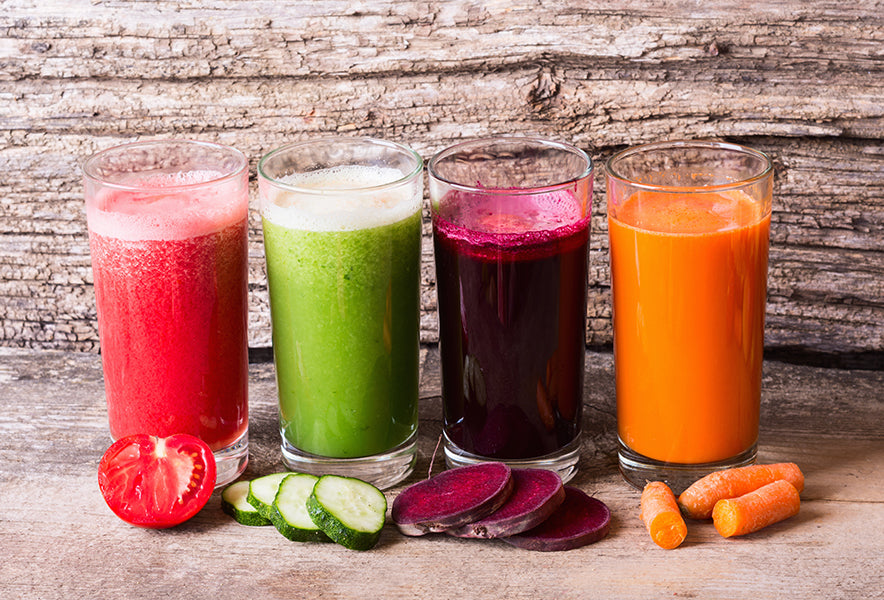Hidden in many foods, sugar is addicting, contributes directly to obesity and is an underlying factor in almost all cases of chronic metabolic diseases.
Often thought only to exist in desserts, candies and baked goods, sugar Hidden in many foods, sugar is addicting, contributes directly to obesity and is an underlying factor in almost all cases of chronic metabolic diseases.Often thought only to exist in desserts, candies and baked goods, sugar is found in foods that lack the ingredient’s trademark sweetness. Sugar is a naturally occurring ingredient in many healthy foods but, when sugar is added unnaturally to food, it is refined and loses water, fiber and all other healthy nutrients.
- The American Heart Association recommends that women eat no more than six teaspoons (about 25 grams) of added sugar daily and men eat no more than nine teaspoons (about 36 grams) daily.
- For those who know the health risks associated with sugar, six-nine teaspoons of sugar a day seems like a reasonable amount. But, according to a study by the Harvard School of Public Health, 70% of Americans consume more than 22 teaspoons of added sugar daily.
Problems Associated with Sugar Intake
The true purpose of eating—aside from pampering your palate—is to maximize bodily function with nutritional fuel. Sugar may enhance a dish’s taste, but it is comprised entirely of empty calories that do not provide the body any redeeming nutrients. According to the Center of Science in the Public Interest, people who consume too much sugar show lower levels of fiber, vitamins and mineral and other protective nutrients. With no added benefits, it's important to consider the damaging effects that sugar has on the body. Dr. Robert Lustig, a professor of Clinical Pediatrics at the University of California, notes that the normal human body can safely metabolize around six teaspoons of fructose sugar per day. However, when fructose consumption exceeds six teaspoons—the case for most Americans—the excess is metabolized into body fat and leads to chronic metabolic diseases.- Liver Damage—Like alcohol, sugar gets transferred to the liver, which gets overloaded with sugar; this can lead to liver damage and disease.
- Weight Gain—Sugar tricks the metabolism by turning off the body’s appetite-control system. Additionally, sugar stimulates ghrelin, the “hunger hormone,” and causes you to eat more and develop insulin resistance.
- Metabolic Dysfunction—Sugar causes symptoms of classic metabolic syndrome like weight gain, abdominal obesity, decreased HDL cholesterol, increased LDL cholesterol and elevated blood sugar, triglycerides and blood pressure.
- Increased Uric Acid—High levels of uric acid have a direct connection to increased risk of heart and kidney disease, as well as gout.
- Risk of Heart Disease—According to a study by Harvard’s School of Public Health, people with high sugar diets have an increased risk of death caused by heart disease. The study cites sugar’s connection to high blood pressure and its dumping of harmful fats into the bloodstream as the main factor in heart disease mortality.
- Increased Cancer Cells—Sugar practically feeds cancer cells. One study found that sugar increases cancer cell proliferation by promoting cell division and accelerating cell growth, enabling cancer to spread faster.
Sugar’s Effect on Children
With their minds and bodies still developing, it is imperative that children consume food that nourishes the body with essential nutrients. Sugar is the basis of many food advertisements geared towards children because sugar is a powerful, and addicting, stimulant that leaves kids wanting more and more sugary cereal, soda, fruit drinks and snacks. While childhood consumption of sugar is down since 2000, kids are still getting 16% of their daily calories from sugar. A 2010 study by lead author Georgina Coade, PhD student at the University of Bristol, concluded that a high fructose diet:- Leads directly to early maturation visceral and subcutaneous fat
- Contributes to abdominal obesity and obesity below the skin
Substitute Natural Foods for a Sweet Tooth
Sugar doesn’t just lurk in sweet treats like soda, fruit juices, candies and ice cream. Sugar is also found in processed foods including bread, meat, pasta sauce, Worcestershire sauce and ketchup. With so many non-sweet foods packed with sugar, it’s easy to exceed the daily-recommended consumption of sugar during just one meal. For example, one and a half cups of pasta, three quarters of a cup of pasta sauce and a salad with two tablespoons of French dressing equates to roughly 24 grams of sugar, or just about a woman’s recommended daily amount and two thirds of a man’s recommended daily amount. With sugar seemingly everywhere, it is best to find natural sugars that match your sweet tooth and are loaded with essential nutrients.- Fruit—No, not the artificial kind that is packed with added sugar, but the kind that is delicious, nutritious and all natural. Aside from being a natural source of sugar, fruit is low in fat, sodium, calories and cholesterol. Additionally, fruit is full of essential nutrients like potassium, dietary fiber, vitamin C and folate, and has been linked to decreased risk of heart disease, heart attack and stroke.
- Carrots—Carrots may not directly lead to improved eyesight, but they are excellent sources of natural sugar. Also, carrots are high in the antioxidant beta-carotene, vitamin A and minerals, vitamins and enzymes that aid in digestion.
- Beets—Beets are great for satisfying sugar urges, and provide high levels of vitamin C, vitamin B, folate and potassium.
- The American Heart Association recommends that women eat no more than six teaspoons (about 25 grams) of added sugar daily and men eat no more than nine teaspoons (about 36 grams) daily.
- For those who know the health risks associated with sugar, six-nine teaspoons of sugar a day seems like a reasonable amount. But, according to a study by the Harvard School of Public Health, 70% of Americans consume more than 22 teaspoons of added sugar daily.
Problems Associated with Sugar Intake
The true purpose of eating—aside from pampering your palate—is to maximize bodily function with nutritional fuel. Sugar may enhance a dish’s taste, but it is comprised entirely of empty calories that do not provide the body any redeeming nutrients. According to the Center of Science in the Public Interest, people who consume too much sugar show lower levels of fiber, vitamins and mineral and other protective nutrients. With no added benefits, it's important to consider the damaging effects that sugar has on the body. Dr. Robert Lustig, a professor of Clinical Pediatrics at the University of California, notes that the normal human body can safely metabolize around six teaspoons of fructose sugar per day. However, when fructose consumption exceeds six teaspoons—the case for most Americans—the excess is metabolized into body fat and leads to chronic metabolic diseases.- Liver Damage—Like alcohol, sugar gets transferred to the liver, which gets overloaded with sugar; this can lead to liver damage and disease.
- Weight Gain—Sugar tricks the metabolism by turning off the body’s appetite-control system. Additionally, sugar stimulates ghrelin, the “hunger hormone,” and causes you to eat more and develop insulin resistance.
- Metabolic Dysfunction—Sugar causes symptoms of classic metabolic syndrome like weight gain, abdominal obesity, decreased HDL cholesterol, increased LDL cholesterol and elevated blood sugar, triglycerides and blood pressure.
- Increased Uric Acid—High levels of uric acid have a direct connection to increased risk of heart and kidney disease, as well as gout.
- Risk of Heart Disease—According to a study by Harvard’s School of Public Health, people with high sugar diets have an increased risk of death caused by heart disease. The study cites sugar’s connection to high blood pressure and its dumping of harmful fats into the bloodstream as the main factor in heart disease mortality.
- Increased Cancer Cells—Sugar practically feeds cancer cells. One study found that sugar increases cancer cell proliferation by promoting cell division and accelerating cell growth, enabling cancer to spread faster.
Sugar’s Effect on Children
With their minds and bodies still developing, it is imperative that children consume food that nourishes the body with essential nutrients. Sugar is the basis of many food advertisements geared towards children because sugar is a powerful, and addicting, stimulant that leaves kids wanting more and more sugary cereal, soda, fruit drinks and snacks. While childhood consumption of sugar is down since 2000, kids are still getting 16% of their daily calories from sugar. A 2010 study by lead author Georgina Coade, PhD student at the University of Bristol, concluded that a high fructose diet:- Leads directly to early maturation visceral and subcutaneous fat
- Contributes to abdominal obesity and obesity below the skin
Substitute Natural Foods for a Sweet Tooth
Sugar doesn’t just lurk in sweet treats like soda, fruit juices, candies and ice cream. Sugar is also found in processed foods including bread, meat, pasta sauce, Worcestershire sauce and ketchup. With so many non-sweet foods packed with sugar, it’s easy to exceed the daily-recommended consumption of sugar during just one meal. For example, one and a half cups of pasta, three quarters of a cup of pasta sauce and a salad with two tablespoons of French dressing equates to roughly 24 grams of sugar, or just about a woman’s recommended daily amount and two thirds of a man’s recommended daily amount. With sugar seemingly everywhere, it is best to find natural sugars that match your sweet tooth and are loaded with essential nutrients.- Fruit—No, not the artificial kind that is packed with added sugar, but the kind that is delicious, nutritious and all natural. Aside from being a natural source of sugar, fruit is low in fat, sodium, calories and cholesterol. Additionally, fruit is full of essential nutrients like potassium, dietary fiber, vitamin C and folate, and has been linked to decreased risk of heart disease, heart attack and stroke.
- Carrots—Carrots may not directly lead to improved eyesight, but they are excellent sources of natural sugar. Also, carrots are high in the antioxidant beta-carotene, vitamin A and minerals, vitamins and enzymes that aid in digestion.
- Beets—Beets are great for satisfying sugar urges, and provide high levels of vitamin C, vitamin B, folate and potassium.






